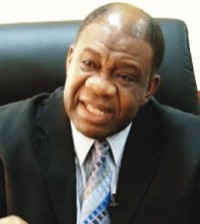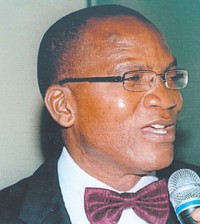Ijeoma Nwogwugwu: As sale of power assets enters home stretch
I heaved a small sigh of relief when the Bureau of Public Enterprises confirmed last Thursday that all 14 bidders had met the deadline given them to pay 25 per cent of their bids for 15 generation and distribution assets that are currently being privatised by the federal government. Prior to the March 21 deadline, I had my concerns. Although the process for their sale had been relatively hitch-free and transparent, I was never delusional over the quality of bidders that had been prequalified to acquire the electricity utilities.
Comprising mainly clusters of opportunistic Nigerian businessmen who were prepared to take risks in an emerging, yet, complex electricity market they knew next to nothing about, I often wondered whether we were setting ourselves up for failure. It was made more bothersome by the fact several of the Nigerian companies that had submitted bids for the distribution and generation assets had what could be termed loose arrangements with their technical partners, which were cobbled together for the purpose of meeting BPE’s stringent prequalification requirements. Very few of these foreign technical partners were prepared to place a bet by way of quantifiable investments on the Nigerian Electricity Supply Industry, at least, not immediately.
Mind you, the fact that all the bidders managed to pay the mandatory 25 per cent of the bids for the assets they are trying to acquire does not in any way suggest that the transactions have been signed, sealed and delivered. Far from it. Within six months, they would still have to cough up 75 per cent of what they have offered to pay before the transactions can be closed and the assets handed over to them. Should they fail to pay what is outstanding, the reserve bidders would either have to be invited to acquire the assets or in instances where no reserve bidders were selected, the transactions could go belly up.
What this implies is that the bidders have entered the final and most difficult phase of the transaction. Most of them would have to raise several hundreds of millions dollars from banks and other sources to pay the outstanding 75 per cent for the assets they wish to acquire. Beyond the funds to pay for the assets, they would still have to raise much more as working capital to upgrade and expand electricity infrastructure, post-acquisition. And as it stands, only a handful of bidders have alternative sources of income streams or assets on which they can leverage to raise the funds from the banks.
It is not just bidders that are losing sleep over where to raise funds for the distribution and generations companies. Even sensible Nigerian banks, which have become risk averse since the banking crisis of 2009, would have to approach the transactions with extreme caution. In the first instance, banks would be circumspect about lending huge amounts to companies that would have to operate in an environment where gas supply for the thermal power stations is often erratic. Second, banks would need to be assured that the development and upgrade of the transmission infrastructure required to evacuate electricity from the power stations to consumers is moving at the same pace as incremental output. A third issue is the resolution of labour issues, which if mismanaged, has the potential of rendering the new owners of the assets and their management teams impotent.
Without these guarantees in place, banks would be hard pressed to finance the power assets acquisitions. Where they do, the loans from the banks would attract high rates of interests, making it impossible for the bidders to service the interest on the loan alone, much less the principal that was borrowed.
But it is not just the bidders’ capacity to raise funds to pay for the acquisitions that we should worry about. We and particularly the BPE should concern ourselves with the degree of leveraging in the course of acquisition. Anyone with some knowledge of privatisation transactions would readily acknowledge that the main reason some of them failed after the government assets might have been sold was because the transactions were over-leveraged.
In instances where an investor has to borrow up to 80 per cent and more from the banks, and at high rates of interest, to takeover and inject working capital into a company, more often than not, that investor is biting more than he can chew. In order to survive, such investors would resort to asset stripping and balkanisation of the company until it is barely recognisable and is reduced to a fraction of the value at which the company was sold. It is noteworthy to add that several of the generation firms are being sold or concessioned (for Kainji and Shiroro) with their non-core assets comprising schools, residential quarters, clinics, training centres and vast tracts of land.
This means that the Monitoring and Compliance Unit of the BPE, if it still has one, has to be extremely alert and must be beefed up with people with the technical know how to monitor and enforce compliance with the business models/post-acquisition plans that the power sector investors have drawn up. They would also have to work in tandem with the Nigerian Electricity Regulatory Commission to ensure that the models conform to the regulator’s multi-year tariff order and that expected income streams can be used to repay the debt on their balance sheets and keep the assets operational.
Just as important, the BPE would have to be open to considering and approving refinancing deals after the acquisitions, as this could help the investors raise cheaper funds from alternative sources. These could come by way of private placements, initial public offerings and from external markets.
Yet one of the drawbacks of the BPE has been its inflexibility and insistence on the sanctity of the share sale agreement that it executes with investors. Well, the power sector privatisation has proved to be its most complex and most difficult transaction to date. Having come this far, the privatisation agency would have to be more nimble, flexible and dynamic to pull of the deals and chaperone them through the final lap of the race.
It should be mindful there are many waiting on the sidelines for first misstep by the bidders and/or the BPE and would pounce at the slightest opportunity to derail the power sector reform and privatisation programme. As such, all hands must be on deck to keep it on track.
Proud Nigerians
Three years ago, I travelled to Rio de Janeiro, Brazil’s second largest city. Naturally, I wasn’t going to pass up the chance to see with my own eyes the city’s iconic landmark – Christ the Redeemer – the 30.1-metre statute of Jesus Christ, which towers over the Rio like a colossus. So a friend of mine and I joined the mini-tourist buses that make their way up the narrow winding road up the mountain on which the statute is perched in the clouds.
Midway through the 30-minute journey, the bus we had joined stopped on what could be described as a flat plain or tiny plateau on the side of the mountain. Apparently, the city authorities had made this midway point a tourist stop with a helipad and cable car to boot, so we could take in the breathtaking view of Rio and the Atlantic Ocean in all their natural splendour. At some point, I imagined I could see across the ocean all the way to West Africa.
As we alighted from the bus to take photographs and gasp at the scenic view beneath us, a woman and her family introduced themselves to us. She said she was of Filipino origin but American by naturalisation. She asked where we were from, we told her Nigeria. On learning of our nationality, she got excited and gushed about how she had just read Chinua Achebe’s book Things Fall Apart. She had read it as a student, she said, but had read it again just before her trip.
We smiled and told her we had also read the book and the lasting impression it had left on all of us. We were quick to point out too, that the canonic book is recommended reading in secondary schools and universities for students studying African literature in places as far flung as Singapore. It was a brief, warm conversation but in that moment, my friend and I swelled with pride at what Achebe through his literary works had done for Nigeria.
Chinualumogu Albert Achebe, though you’re gone, it would be inappropriate to say goodbye. Through your works and words, you shall live forever.








